In 2005 Wheaton College received a generous endowment from the John Deere Foundation to hold an annual Symposium in Human Needs and Global Resources. The intent of the grant is to advance the critical thinking needed to address world hunger through agricultural and economic development. This will be accomplished by engaging faculty and students in strategically thinking through the theoretical and practical challenges of global economic, social, and political development, including themes in both rural and urban contexts, relating to world hunger, food production, agriculture, water resources, urbanization, environment, health and conflict.
-(2).png)
The Human Needs and Global Resources (HNGR), the Office of Multicultural Development (OMD), and Intercultural Arts and Media (ICAM) presents "Art, Activism, and the Prophetic Imagination": Fall 2024 Symposium (Sept. 30-Oct. 4).
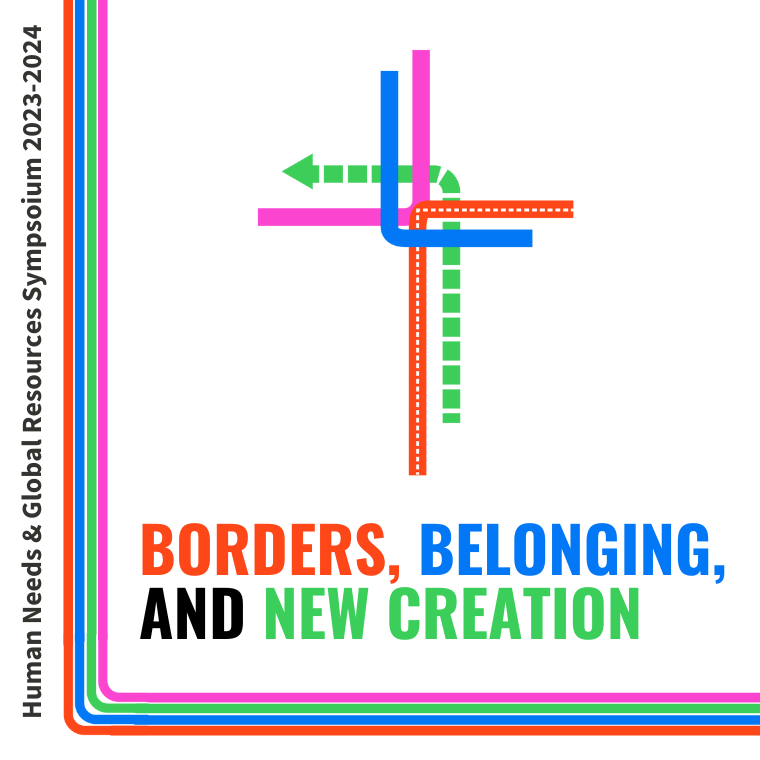
The Human Needs and Global Resources (HNGR) at Wheaton College presents "Borders, Belonging and New Creation: Fall 2023 Symposium in Human Needs and Global Resources (HNGR) on October 3-5, 2023.
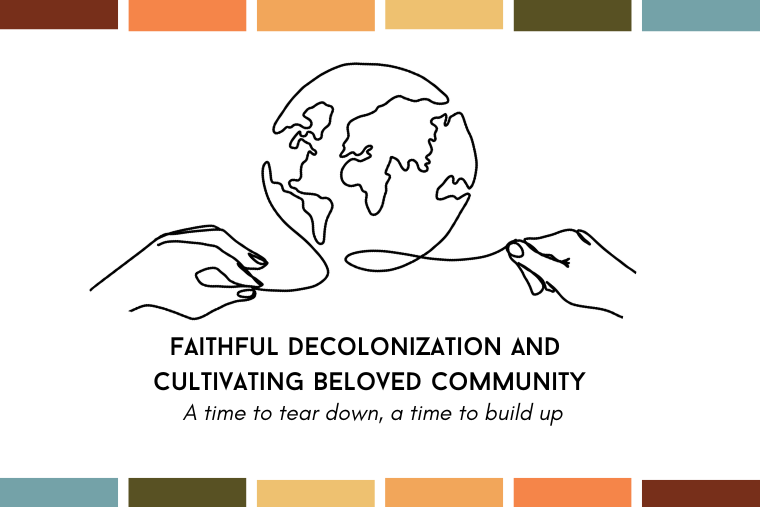
How are we to practice and embody faithful decolonization as learners, neighbors, citizens, and followers of Jesus? Why does the work of identifying and transforming the adverse impacts of colonization matter in the first place?
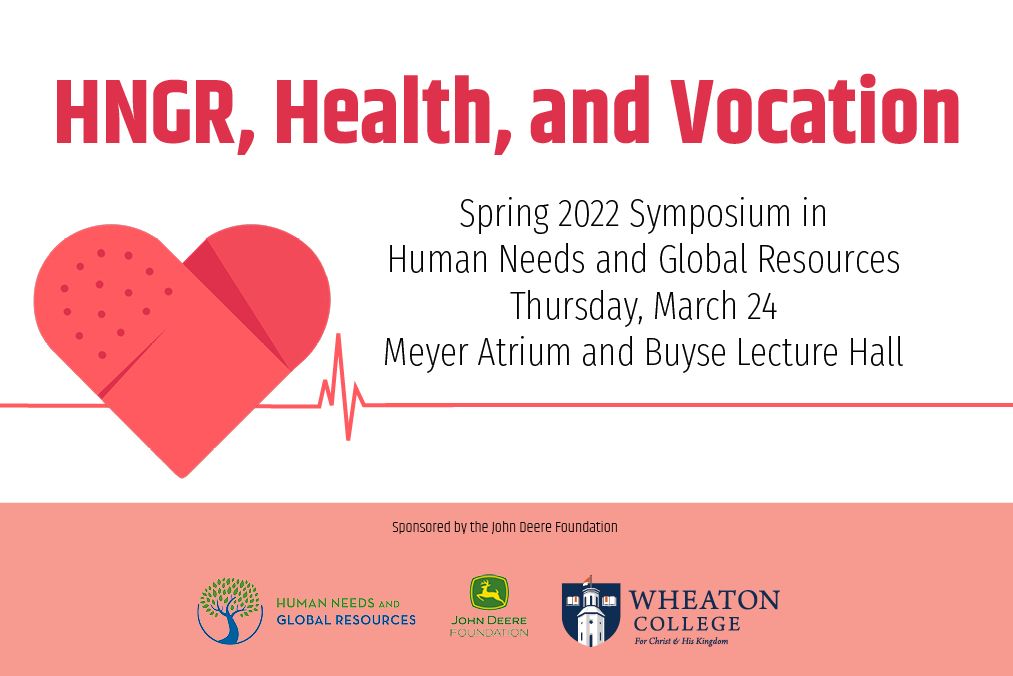
Listen and learn from an alumni panel disucssion with Dr. Chuck Liu (2007), Rachel (Wathen) Woehr (2007), and Laura Pax (2017).
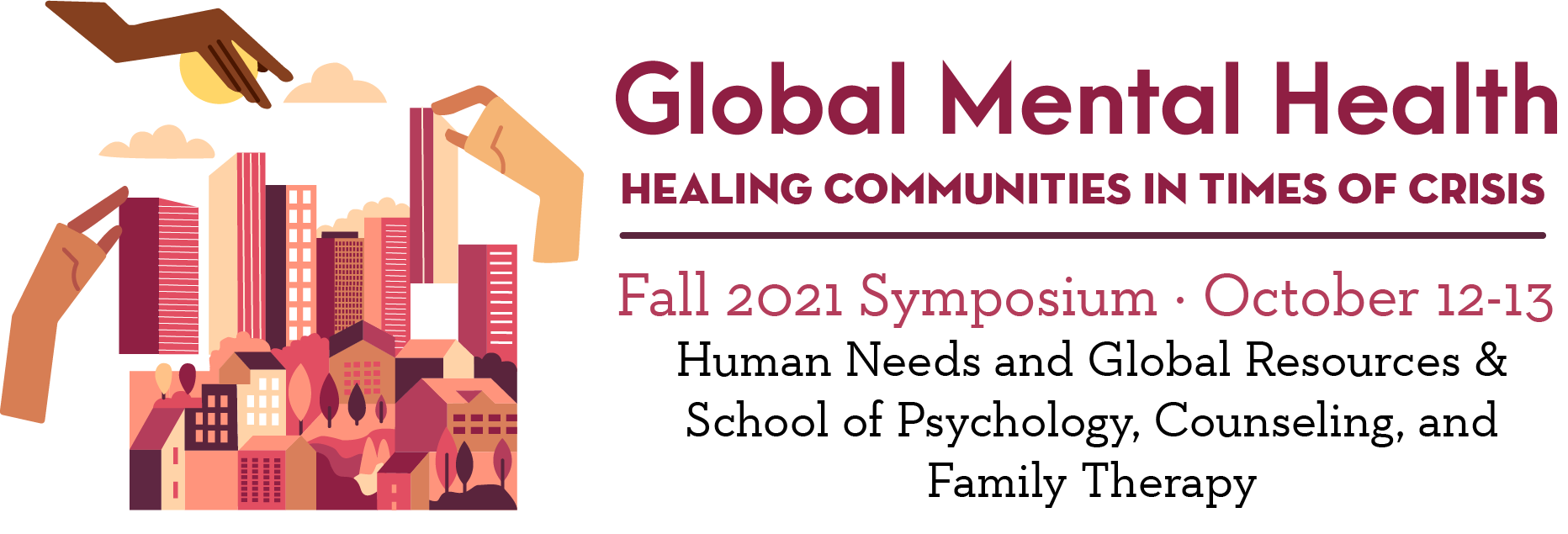
The 2021 Wheaton College Fall Symposium in Human Needs and Global Resources convened leading mental health researchers and practitioners to consider the diverse and significant impacts of COVID-19 on mental health, on mental health services, and on frontline workers, and specifically church leaders and community health workers, who provide care and services to vulnerable populations. The annual Symposium was a collaborative event organized by the Human Needs and Global Resources Program and the School of Psychology, Counseling, and Family Therapy. This joint Symposium featured medical doctors, psychiatrists, counselors, and church leaders whose work and ministry aims to understand the factors that strengthen human mental health, community well-being, and community health infrastructure, and especially within and among vulnerable populations.
This year’s Spring Symposium focuses on addressing a timely and important question: How are local organizations that work for positive social, political, economic change responding to the challenges and opportunities generated by the COVID-19 pandemic? We explore the question in series of informative podcasts that are hosted by Wheaton College faculty. In each podcast we hear from leaders of different faith-based organizations working in Asia, Africa, and Latin America and from Wheaton College alum who worked in each organization as part of their internships in the Human Needs and Global Resources Program.
2020 Spring HNGR Symposium
A conversation with Dr. Vilma “Nina” Balmaceda, who has been our Stott Visiting Scholar and has served with Peace & Hope International.
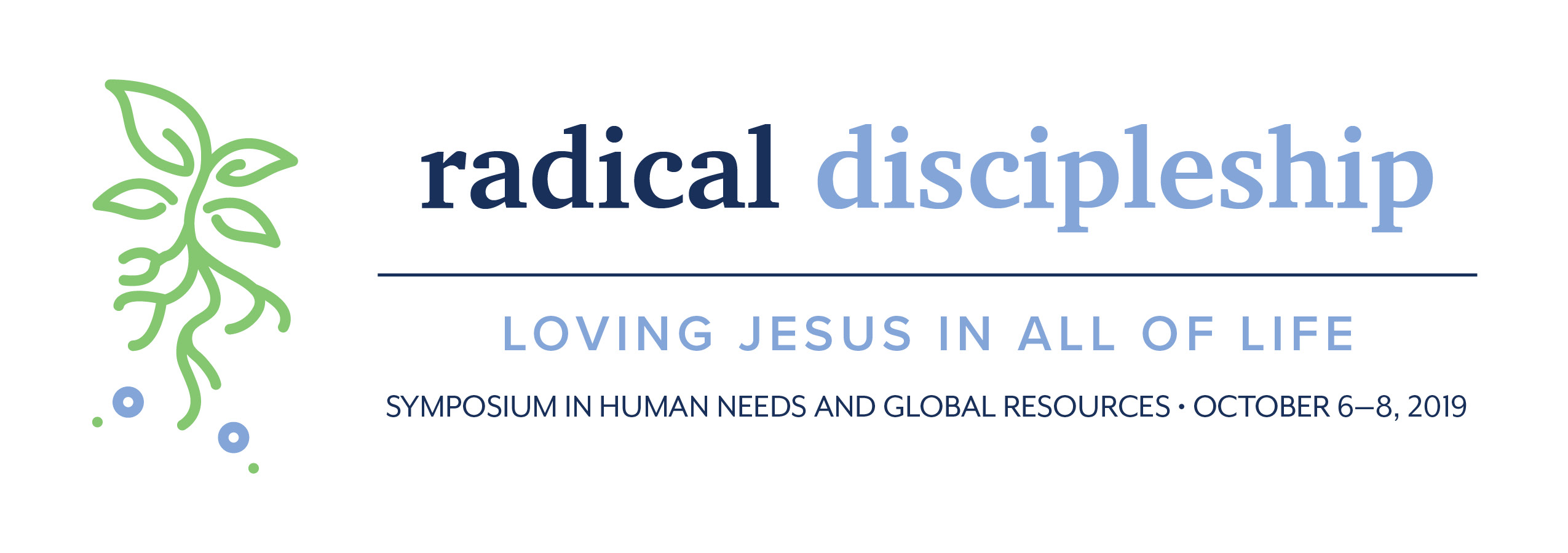
Rev. Dr. John R.W. Stott’s words, ministry, and life communicated the radical simplicity of deep conversion integrated with wholehearted discipleship. The 2019 Symposium in Human Needs and Global Resources of Wheaton College will celebrate three commitments Stott embraced: strengthening global church leadership, broadening Christian social engagement, and advocating for creation care as integral to discipleship.
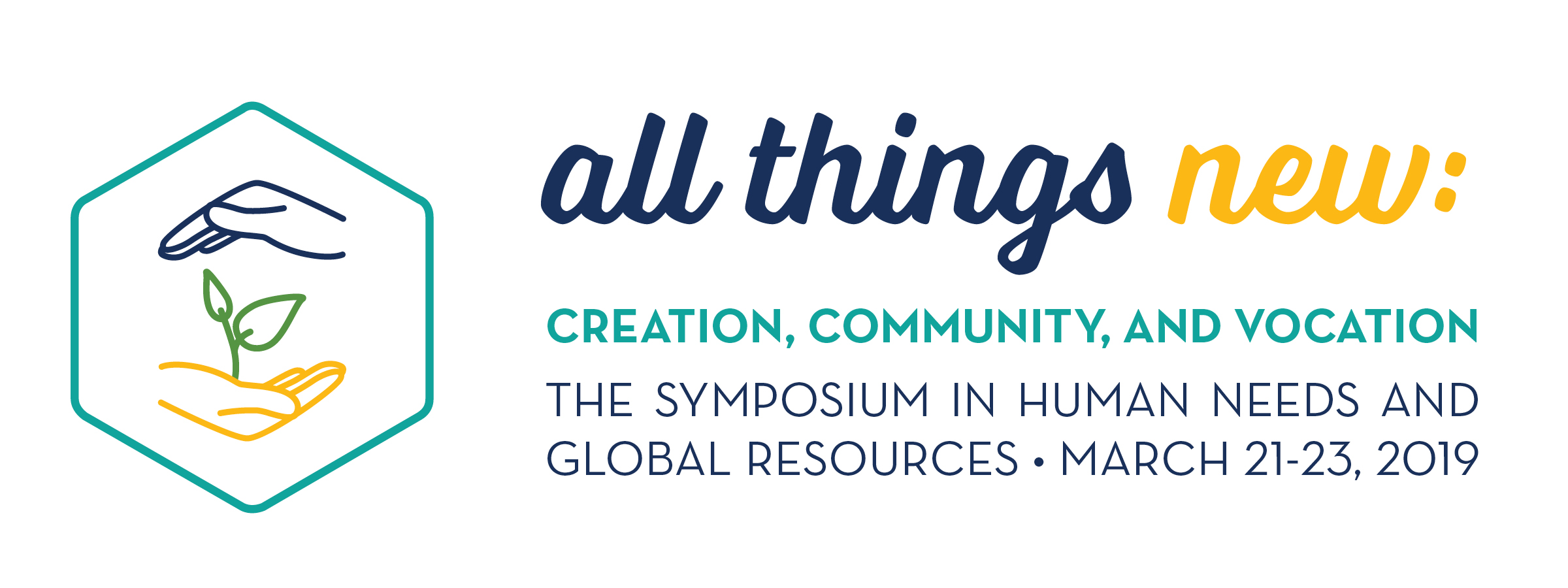
The 2019 Wheaton College Symposium in Human Needs and Global Resources will convene scholars and practitioners who seek to understand and illuminate the intrinsic connections that link the vocations we develop, the communities to which we belong, and the environments we inhabit.
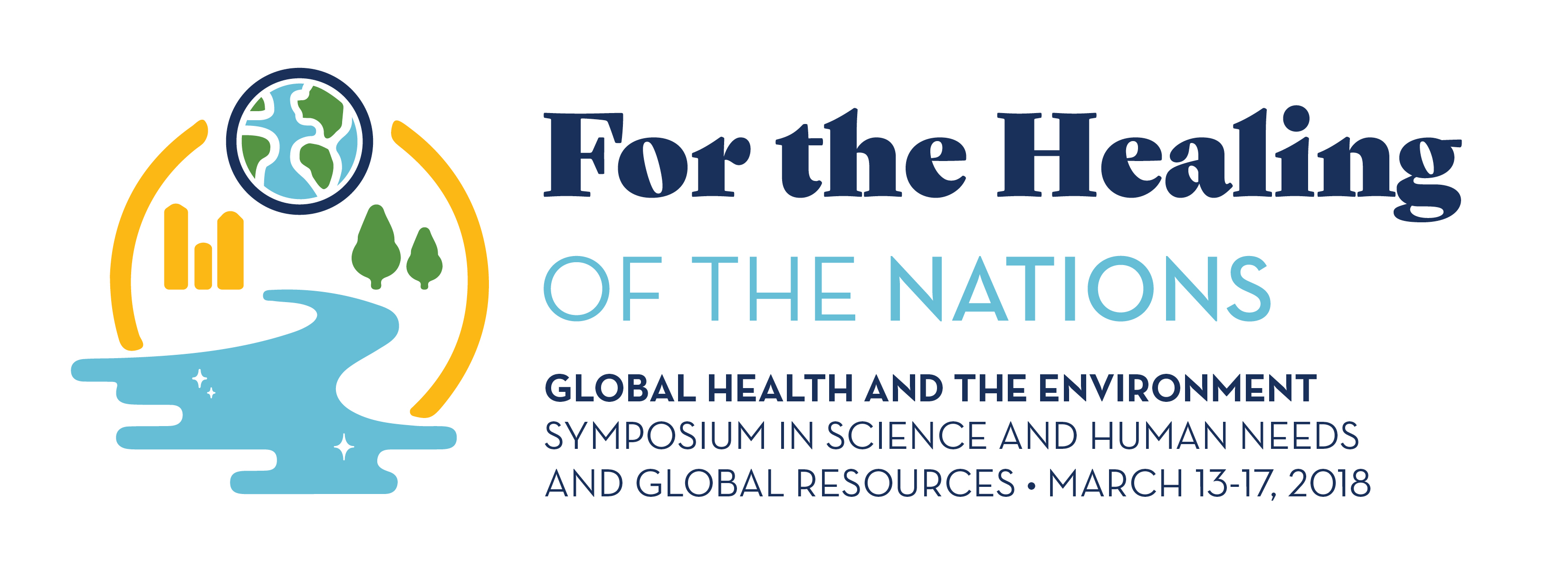
The 2018 Wheaton College Symposium in Human Needs and Global Resources convened leading researchers and health practitioners to recognize the resolve, vision, leadership, and expertise of diverse individuals and organizations working to improve human health and to combat environmental injustice in communities around the world.
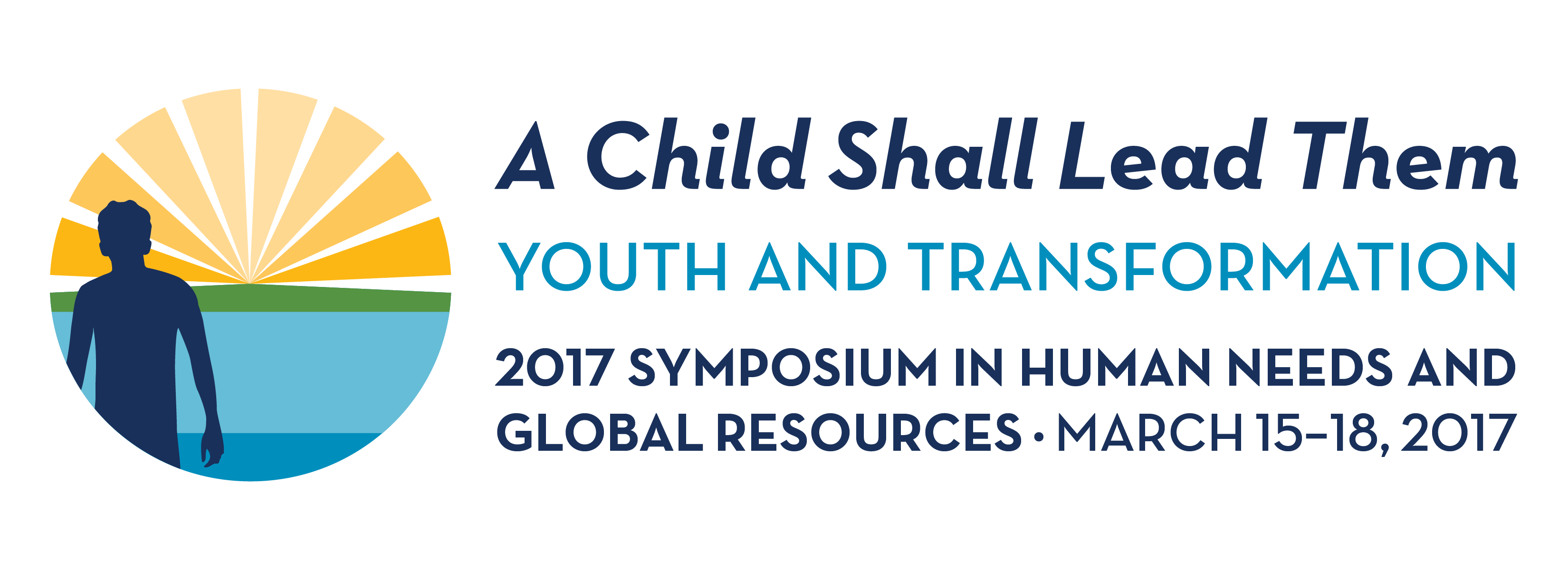
Dr. David Kasali, Rector of the Bilingual Christian University of Congo and President of the Congo Initiative gave the plenary address. Dr. Alicia Casas of Youth for Christ in Uruguay and Bishop Zac Niringiye also explored how they work with youth to transform the world. Our three esteemed guests shaped us to see how youth are protagonists, or the subject, in God's narrative, not merely the object.

Recognizing the creativity, vision and leadership of HNGR’s partner organizations from across the Majority World that are working towards environmental and human flourishing.
The 2015 Symposium explored the complex linkages between conflict and hunger and underscored the fundamental importance of reconciliation work for regaining food security in post-conflict settings. As the Symposium Plenary Speaker, Dr. Katongole addressed the role of reconciliation in the multiple dimensions of post-conflict recovery, with a focus on regional examples from East Africa that directly address agricultural initiatives as integral to the process of rebuilding peaceful communities that support healthy agrarian societies.
Healthy soils, with high organic content and an abundance of soil organisms, can contribute to food security, and in turn to stronger local communities and robust rural life. Stories and examples of programs and growers who have transformed depleted soils into productive spaces are inspiring and draw attention to one of the most promising growth areas in agricultural improvement worldwide. This symposium was held to expand upon the soil science itself to explore the institutional, socio-economic, and cultural factors that start, spread, stifle, and transform initiatives to conserve and improve soils.
For the 2013 Symposium, we went small in order to think big. Agriculture and food production are the world's most popular vocations, but smallholder farmers in the Global South often have a hard time feeding their own families, much less those around them. Addressing the needs of farmers who own less than five acres of land or less could be the answer to not only solving their problems of hunger, but the response needed to feed 7 billion people. Dr. Gebisa Ejeta and Roger Thurow were the plenary speakers.
For the 2012 HNGR Symposium, we explored the role of civil society--particularly the role of citizens to influence government--given the fact that escalating food prices, increasing vulnerability, and deepening hunger worldwide have been precipitators in changes such as the "Arab Spring." Through the plenary and other events, the Symposium explored the importance of advocacy on behalf of the poor and hungry and sought to highlight the importance of domestic and international civil engagement.
The world's burgeoning cities necessitated this year's symposium, which explored the link between rapid urbanization, poverty, and hunger, and sought to highlight development initiatives that improve urban life by providing access to opportunities and basic resources. Our plenary speaker, Oya Hazel Gumede, LL.M. a rising young leader, explored the challenges of urban life in her native South Africa as well as creative solutions that make hope possible in those contexts.
How does peace-building relate to poverty, hunger, and international development? The 2010 Symposium explored the different factors that influence and drive development initiatives in post-war contexts, including resource management, food security, humanitarian intervention, and legal restitution. Mr. Jonathan Greenham of Development Alternatives, Inc. (DAI) delivered the plenary.
The 2009 Symposium centered on the theme of holistic community health and its relationship to global hunger, poverty, and development. Three Regional Coordinators from our longstanding host partner, Luke Society, joined us to discuss the importance of supporting local vision in order to effect sustainable development.
How does property ownership and resource management connect to food security and political stability? The 2008 HNGR Symposium explored the intersection between property rights, land policy, and poverty alleviation. Visiting scholar Dr. Aklilu Dalelo, of the University of Addis Ababa, Ethiopia gave the plenary address.
The main conclusion agreed upon by participants in our first HNGR Symposium is that neighborliness is at the heart of transformational development. During the 2007 Symposium we explored this idea further with the help of Dr. Jim De Vries of Heifer International, one of HNGR's long-term partners.
The inaugural HNGR Symposium was held on the occasion of HNGR's 30th anniversary. The Rev. Dr. Vinay Samuel gave the plenary address, "Transforming our Cultures: a Gospel Imperative."
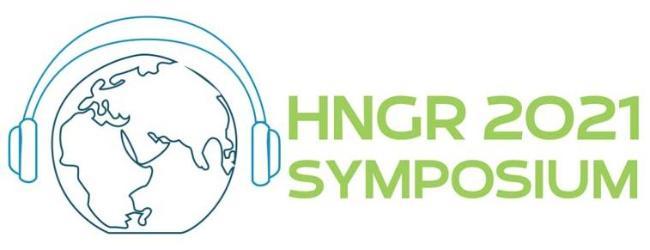
/prod02/channel_1/media/hngr/2020-symposium-thumbnail.jpg)